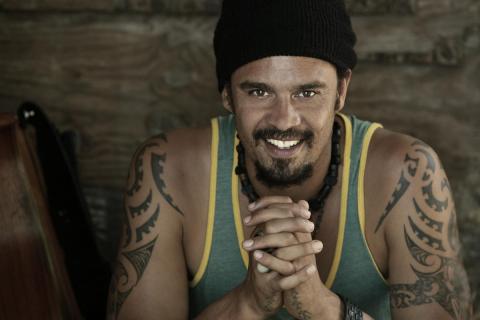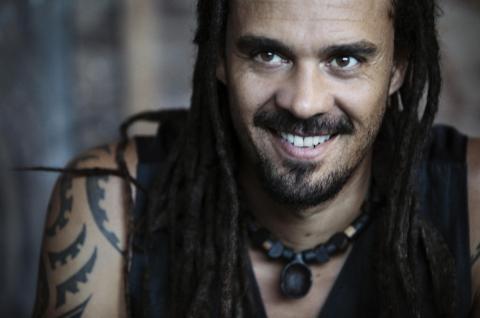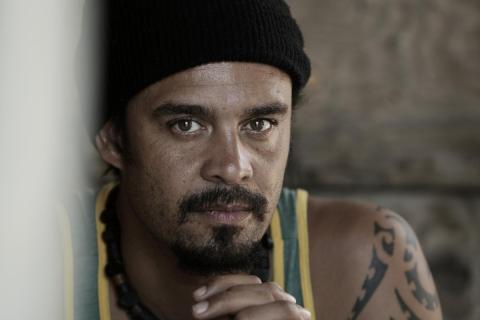
Cliché question, but does music have the power to change the world?
“I don’t know if music has the power to change the world over night, but I know it can help us make it through a difficult night. Sometimes that’s what we need to keep going. I also feel that the world changes when people are provided a different perspective, a new way of looking at things. And sometimes music has the power to do that. We can’t change foreign policy or fix global warming, but music has the power to provide a different perspective of how people view the world.”
In 2008, Neil Young said, “I think the world today is a different place, and that it’s time for science and physics and spirituality to make a difference in this world and to try to save the planet.”
“I agree with him. It’s just like what I was saying. Music isn’t going to change the minds of politicians immediately, but it can provide people a new perspective on how they see the world and that ultimatley changes things.”
Back in the days of your band Disposable Heroes of Hiphoprisy [1990 to 1993] or your first couple of Spearhead albums [1994…], did you think that you could have an effect on people, rally them and make a difference?
“When I first started in music, I knew that the music that I listened to had an incredible effect on me. When I was a kid, I listened to Bob Marley; I listened to The Clash; I listened to lots of great funk bands; a lot of great hip hop artists who were talking about things that were happening in the world. It really shaped my consciousness and it made me think beyond my immediate borders and so I went into it believing that music is a way to express one’s self. And it didn’t matter if it was about how much I loved my girlfriend or if it was about things that I saw in the world that were taking place or that I felt were wrong or that I disagree with, music was an opportunity for me to voice it.”
As a songwriter in your early days, if you were going to write about an important issue — the death penalty, the environment — did you research that topic so lyrically you seemed informed or were informed?
“Yeah, I did. I’ve always been a news junkie, so I’ve always read many forms of media, listened to different radio stations, television journalism. But even with all that, for example, in 2004, I went to Iraq and even with everything I saw on TV and searched out on the Internet, radio and all kinds of underground things, there was nothing that compared to going to Baghdad and playing music on the street and talking to the people that I played for, face to face.”

“I went there and I played music for people and then I would talk to them about their lives. I met a woman in Israel whose son had been in The Israel Defense Forces and had been killed. One day, she was eating lunch in a café and she just happened to meet a Palestinian woman and they struck up a conversation. It turned out this Palestinian woman had lost a sister in the conflict so the two of them starting talking about it. They agreed to meet again another day and another day and another day and eventually they formed a group of families of bereaved people who came out with this message: They said, ‘We don’t want the death of our family members to be used as a cry for more war; we want it to be used as a cry to end all wars.’
“And as I was meeting with this woman in her living room, and speaking to her about this, I questioned myself, if I was in the same position, if I could have that same compassion. She told me that she didn’t always feel that way, but it came about through experience of meeting people on the other side, and speaking to them directly and hearing their pain and being open to hearing her pain, that things ultimately shifted in her.
“So what I took away from my experience in Iraq, Israel, Palestine, everywhere where there’s conflict, even Brazil, and many places I’ve been around the world, I’m on the side of the peacemakers. I know that there are people on all sides from all countries that are willing to take incredible risks to achieve peace. And I oppose military violence of all types and political violence. It’s something I think really puts us backward.”
Do you really think peace is possible, given that war has been around since the beginning of time?
“I believe that it’s possible that we have far less political military violence than what we see today. [Pauses, then chuckles] Do I really believe that we’re winning at keeping our country safe by bombing villages in the mountains of Afghanistan and Pakistan with drone missiles? No. I think we’re making people more upset, more angry, creating more pain. So multiply that times thousands of conflicts around the world and you see what we get. But I’ve seen in places where people come together, talk to each other, support each other and, ultimately, that’s how they move on.”
You seem like such a positive guy, which is especially evident on your new album – The Sound of Sunshine. Travelling and meeting all these people and being more directly involved with the human side of these issues and understanding them, it hasn’t turned you into a cynic — has it?
“No, in fact, just the opposite; it’s turned me into somebody who really believes that people can grow, people can resolve conflicts, people can change and that it doesn’t have to come by forcing other people into that through the barrel of the gun; it can come through other means.”
What are some of the stand out stories for you from your fans, people who meet you, have been drawn to a song, have maybe done the same thing you did upon hearing Bob Marley but it’s your song that turned them onto an issue?
“I have people coming to me all the time and telling me stories about the way they’ve been inspired, not only by my music, but by music as a whole. I’ve been barefoot for 10 years. I started playing music on the street in countries where kids couldn’t afford to wear shoes. So after one trip I came back and I was just going to see if I could go for three days barefoot and it went a week and a month and just last April it was 10 years. So to commemorate this, we partnered with this organization called Soles4Souls [www.soles4souls.org] and they provide critically needed footwear for people in natural disatarers like in Haiti or New Orleans, and they also provide shoes for over 300 million kids around the world who have never worn a pair of shoes before.
“So on our last tour, we did a shoe drive. We invited our fans to bring their used shoes to our shows and it started to really take off. I had conversations with people, where they said, ‘I told this to my people at work and everybody in our office decided we were going to bring our shoes; we brought 200 pairs of shoes tonight.’ And there were some 11, 12, 13 year old girls in Pittsburg who collected over a thousand pairs of shoes from their schools. So it’s nice when you hear stories like that, but I’m also thrilled when somebody says, ‘I met my girlfriend at your show’ or ‘Last time I was at your show I was six months pregnant and now here’s the baby; he’s three months old,’ and they put him in my arms. Those things mean just as much.”

“In terms of the world, it has to be two things: poverty, first thing. Someone is far less likely to strap a bomb onto their body and walk into a supermarket if they have a job; if they have clean water to drink; if they have a roof over their head; if they have access to education and healthcare; the second thing is climate change and global warming.”
What hasn’t changed? For example, with all these cancer and AIDS research fundraisers, what on earth are they doing with all this money? Surely, there should be some major breakthroughs by now?
“Once you get involved in social issues, it’s really easy to start and it’s really hard to stay the course over a long period of time because you look and you see very minute change, but it’s kind of like looking at a tree. If you look at the tree, someone might ask you, ‘Is this tree alive?’ And you look at the tree and you say, ‘I don’t see the tree moving so it must be dead,’ but if you were to come back five years later, you would see that the branches had grown much wider; it has taken in a lot of sunlight; it had beared fruit; it has provided so much for the animals and the people around that tree and fertilized other trees from its leftovers and the tree was very much alive and very much growing and very much changing. And that’s kind of how the world is. Sometimes, we look at it and think, ‘Man, it hasn’t changed that much,’ but just [recently] I heard about how they’re trying to repeal Don’t Ask Don’t Tell [the U.S. military ban on openly gay servicemen and women]. Who would’ve thought that five years ago?
“So things change in subtle ways and that’s why I feel like music is so important. It’s helps us to stay in the game and to continue to stay uplifted and continue to eye a greater prize.”